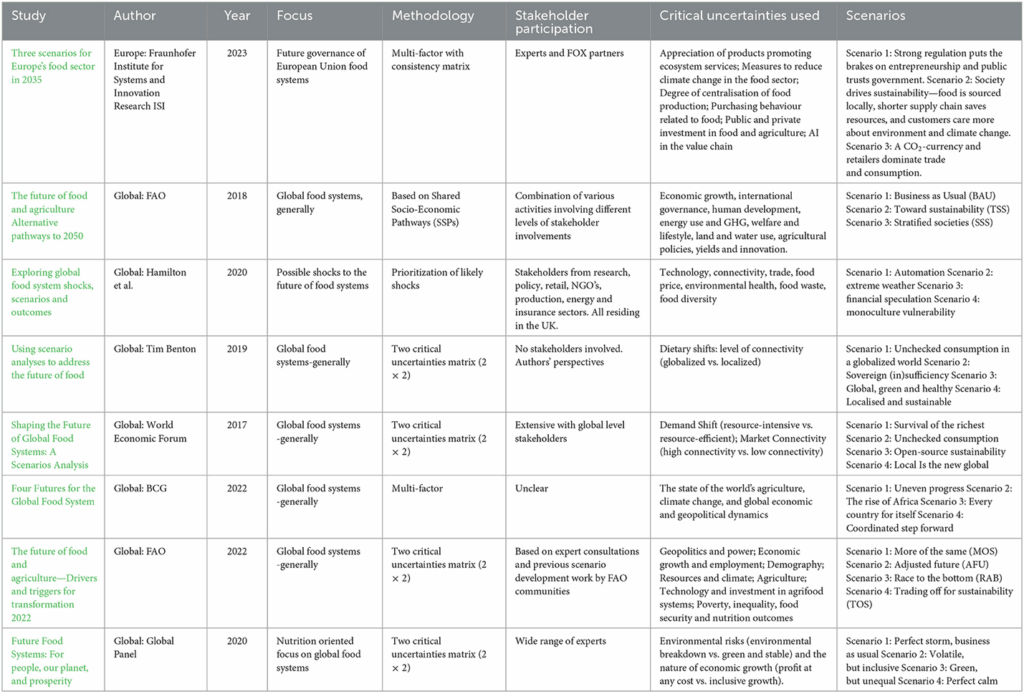Researchers from the Foresight4Food initiative has published a new study in Frontiers in Sustainable Food Systems, urging policymakers, academics, and international organisations to rethink how we imagine the future of global food systems.
The paper, titled “Advancing the next-generation of global food system scenarios: a critical review of existing narratives”, authored by Bhawana Gupta, Monika Zurek, Jim Woodhill, and John Ingram, reviews eight major global and EU-level foresight studies, covering 30 scenario pathways, and examines how they approach issues such as health and nutrition, livelihoods and equity, and climate and environment.
The authors argue that while existing scenarios provide valuable insights, many rely heavily on conventional assumptions about megatrends like demographics, technology, and consumption patterns. Radical uncertainties, such as governance breakdowns, geopolitical shocks, or disruptive social and environmental change, are often overlooked.
The study highlights a pressing need for next-generation scenario frameworks that are more inclusive, ambitious, and capable of addressing the complexity and volatility shaping today’s global food systems. This includes integrating social justice concerns, power dynamics, and emerging risks into future outlooks.

With food systems already under pressure from climate change, pandemic aftershocks, and geopolitical instability, the research comes at a critical time. The authors hope their work will support the development of foresight tools that not only describe plausible futures but also help decision-makers act more decisively in building resilient and equitable food systems.
The full study is freely available in Frontiers in Sustainable Food Systems.